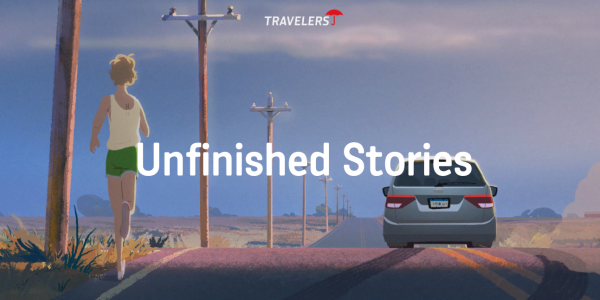
Image © https://www.seeunfinishedstories.com/
With the holidays in full swing, a great deal of focus is being placed on the time crunch we’re all feeling and how that makes us take dangerous short cuts. Texting while driving is, arguably, one of the most dangerous.
A recent article focusing on Travelers’ new safe-driving campaign reminds us that there is already a plethora of videos and photos showing horrific accidents. In fact, the article states that one driver’s video actually made one student physically ill: “one of my classmates vomited on the spot … other kids just laughed.”
Apparently, Travelers and their agency have a new take on getting through to those untouchables who continue to risk life and limb – their own and others’ – by texting while driving. Instead of going for the “full horror” approach, they are depicting fictional life stories, that could have been of those whose lives have already been cut short. Like 19-year-old Phllip LaVallee.
In their estimation, the poignant message will be more effective than the full-on shock videos that are circulating.
I think this is brilliant, and I can’t wait to read the results. For me, personally, I find poignancy far more compelling than shock. When I am exposed to shock, I go into shock. I find myself fighting to forget what I’ve seen, and I am thrown completely into flight mode. I will do anything to escape the horror. I know not everyone is like me – like those students who laughed at the gory video – but I know a ton of people who are.
If Travelers’ campaign proves more effective than big shock, maybe some other industries will take a cue from them, like: animal cruelty, smokers who get cancer, babies dying in foreign lands, etc.
I donate to charity, but so far, never one that has exposed me to material that is tantamount to emotional abuse.



